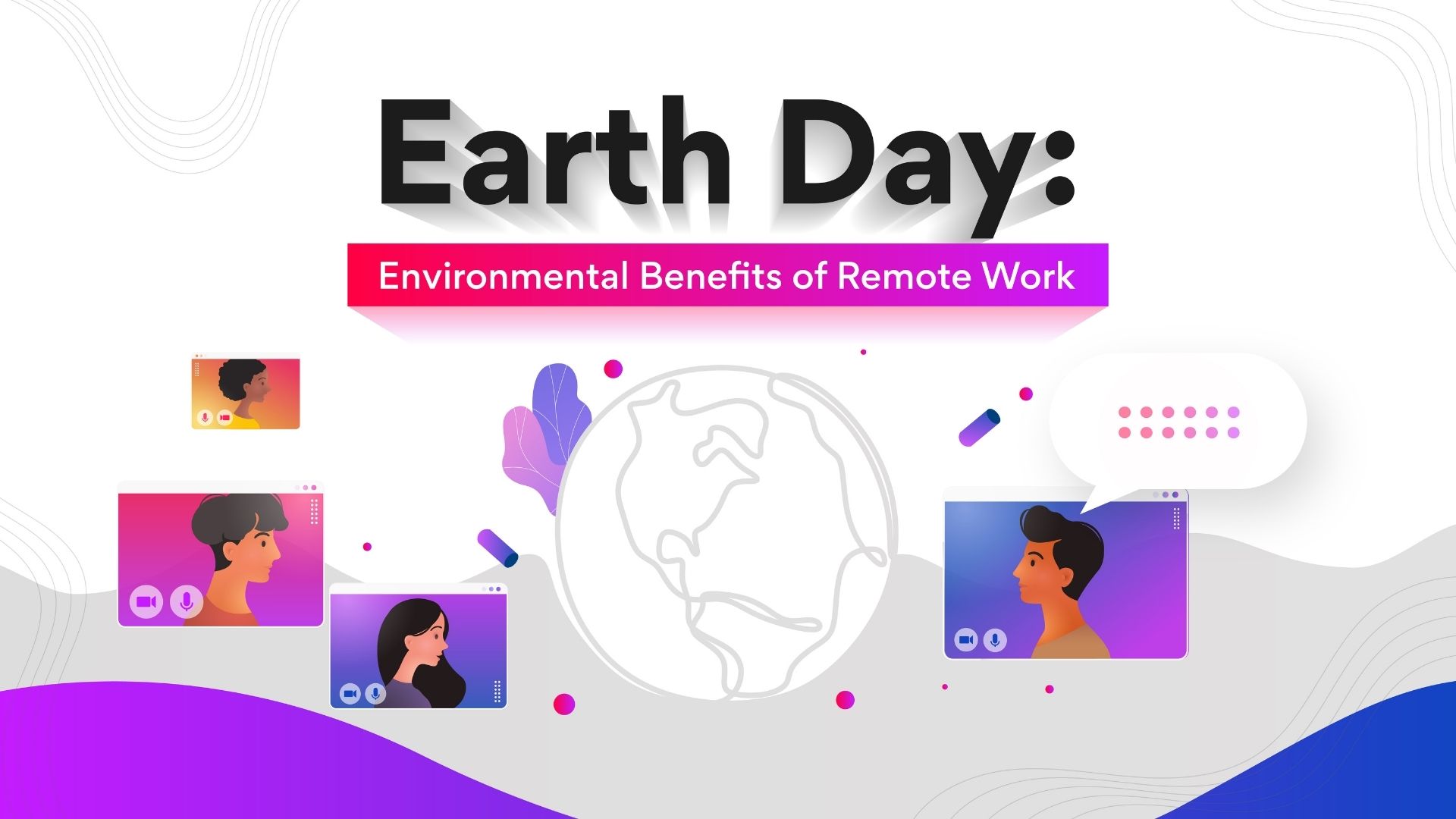Earth Day: 5 Environmental Benefits of Remote Work & Hiring Remote Workers
Billions of people around the world celebrate Earth Day on April 22 every year. Earth Day aims to raise awareness of the climate crisis and bring about behavioral change to protect the environment.
The last few years have seen a global shift to remote work. Companies are breaking geopolitical barriers, hiring remote workers, and embracing the global talent pool. Organizations have reported increased productivity and employee satisfaction by adopting remote work. Remote work also helped companies save expenses related to physical workplaces.
But how can the adoption of remote work help the environment? How can organizations make a positive impact by hiring remote workers?
This Earth Day, let’s look at five key environmental benefits remote work offers.
-
Reduces infrastructure impact – Less deforestation
As companies hire remote workers, the need for permanent office space has decreased. This development has helped employers save money on leasing or buying office premises. In addition, this step has also helped companies reduce the requirement for physical infrastructure. Subsequently, remote work has reduced the demand for commercial real estate. Thus, the adoption of remote work on a large scale can help control the consequences of deforestation. -
Cuts down on commuting – Reduces greenhouse emissions and improves air quality.
With companies hiring remote workers, there’s been a significant decrease in commuting. This step has helped reduce the overall carbon footprint, thereby limiting pollution on a global scale. According to an estimate by Global Workforce Analytics, if everyone who works in an office works from home just half of the week, we could cut 54 million tons of emissions! In yet another study, the U.S Environmental Protection Agency has stated that to counter the emissions caused by commuting to work in the USA every year; we would have to plant 91 million trees.
Remote work helps in reducing greenhouse emissions and improves air quality.
Companies should embrace remote work, especially in cities with poor air quality. Companies can spread awareness about the increasing pollution and global warming while adopting ways to reduce their carbon footprint. -
Limits consumption of office supplies – Remote work reduces office waste
In-office employees use a large number of physical office supplies. On the other hand, remote employees rely on digital means of communication. This switch aids in reducing of use of the physical supplies.
When employees work remotely, they share most paperwork electronically. According to a survey, physical offices dispose of around 247 trillion sheets of paper every year. And thus, we can eliminate a substantial amount of paper waste by adopting remote work.
In addition, in-office employees go through multiple plastic cups and cutlery pieces each day. This usage inevitably adds to office waste. However, remote work significantly cuts down on this waste. -
Reduced energy consumption – Better energy usage and energy saving
Studies report that energy consumption in a physical office is twice as compared to a remote workspace.
Remote work reduces energy consumption
Physical offices must maintain optimal heating and cooling, multiple computers, servers, printing stations, etc., to ensure seamless day-to-day operations. This management results in high energy consumption.
Moreover, employees are lenient with energy usage at the office compared to their homes. For example, an employee may not turn off a light that’s not in use in an office. However, a remote employee will ensure that no light is on when not in use at home. -
Work-life balance – Helps give back to the environment
Companies hiring remote workers get to choose the best talent from different time zones. Hiring employees from different time zones results in diversity, inclusivity, and flexible working culture. This culture helps employees achieve a healthy work-life balance.
When employees are happy with their work and have an outstanding work-life balance, they have more time to participate in activities that benefit the environment. Thus, remote work can help employees contribute toward the betterment of the environment.
How can your company contribute to the environment this Earth Day?
There are no scientifically proven adverse effects of remote work. However, countless studies have shown that remote work has several benefits for employees and companies. Most importantly, remote work can be a game-changer for reversing the decades of environmental damage in-office work has caused. In addition, switching to remote work can help companies reduce their carbon footprint.
Organizations worldwide can do their bit by going remote and hiring remote workers this Earth Day.
Other key benefits of hiring remote workers are:
- Reduced expenditure on office spaces
- Increased productivity
- The global pool of talent to choose from
- Increased employee satisfaction
Are you looking to hire brilliant remote developers this Earth Day? If yes, try Turing.
Turing’s Intelligent Talent Cloud enables companies to hire Silicon Valley-caliber developers at half the cost in no more than 3-5 days. Check out the Hire Developers page to know more!
Tell us the skills you need and we'll find the best developer for you in days, not weeks.












